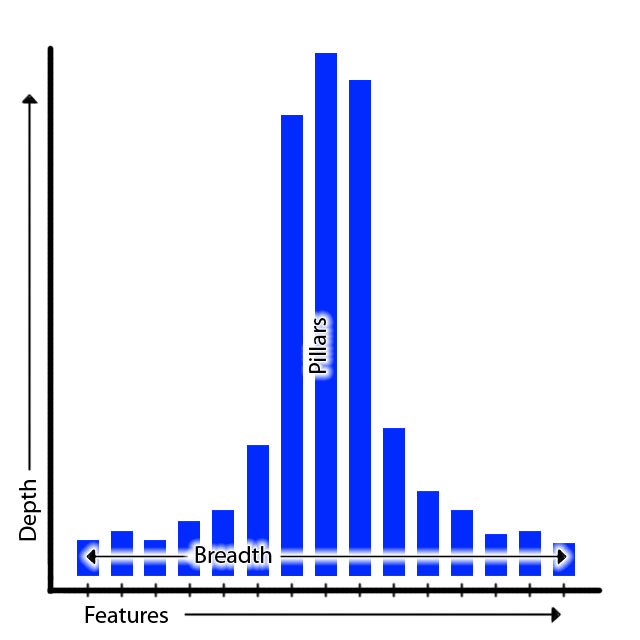
After a week or so in my old stomping grounds of Madison, Wisconsin, I’ve returned from GLS. It was an intersting show, with lots of folks with interesting stuff to stay. It was also great to see some old friends, talk some shop and reminisce.Â
Certainly my favorite thing at the conference is my former Raven cohort Nathan McKenzie’s presentation of some great, fun-looking games that also have some incredible potential to teach as well. Nathan is preaching a philosophy (which I fully agree with) that instead of trying to make the existing, must-maligned “learning games” into fun experiences, we should instead consider making fantastic games that apply learning to existing play patterns that demand learning from the audience already (such as memorization of real spanish words rather than game-fiction terms like “Bulbasaur”). His two demos were really cool to see.
By popular(?) demand, below are the slides for my GLS presentation, “Combating the Curse of More: Focusing Your Game”. It was a bit different than most of the heady topics discussed at the show, but it seemed to go over well for those that were looking for more of a “dev” point of view. An overview of the talk seems to have popped up on Gamasutra as well.
This week also marks the start of a new role as Lead Designer at Hidden Path Entertainment in Bellevue (Seattle-area). Once again, I’m diving into some new, exciting stuff with some incredibly talented and capable people… I’m utterly excited to see where this path (ha, a pun) will lead.
Click on the Banana to get the file.


